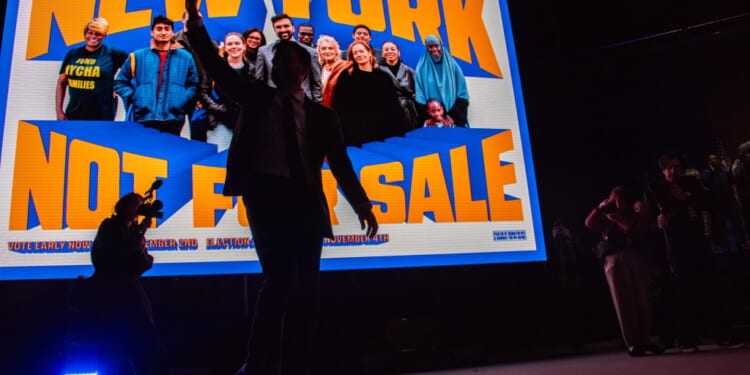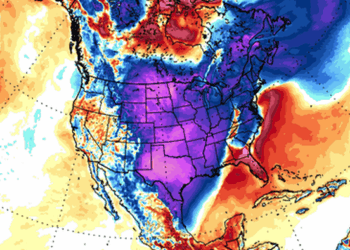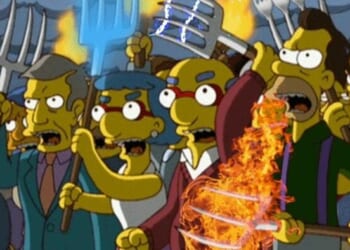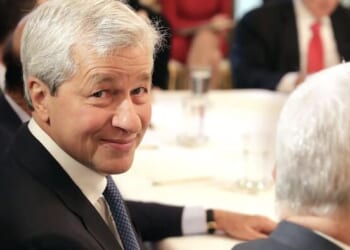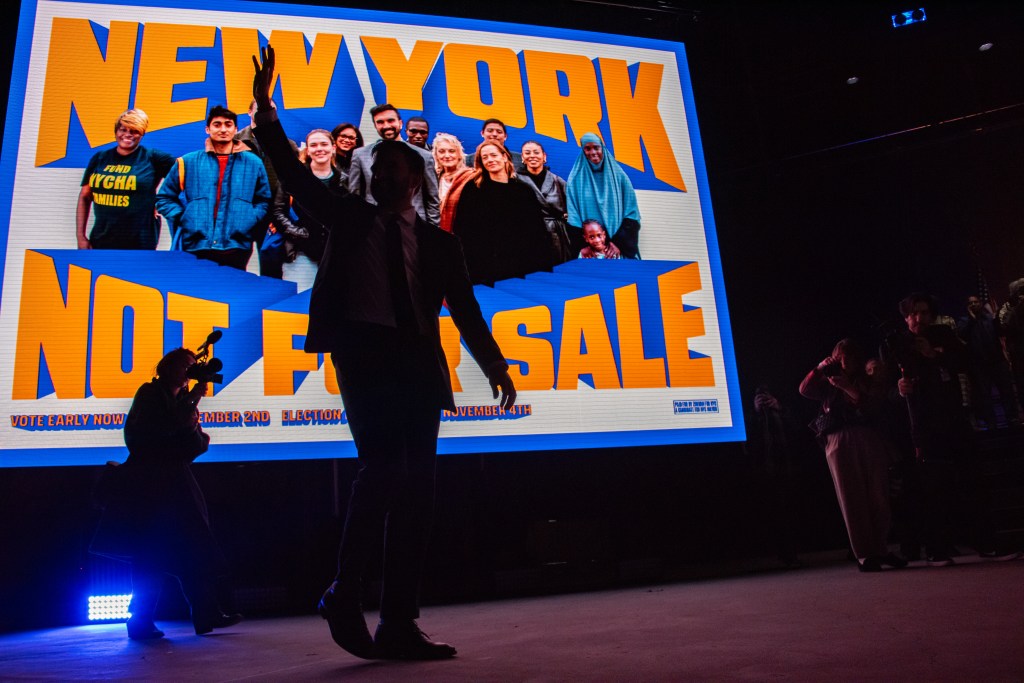
The closest Republicans have come to finding a new bogeyman in the Trump era is Rep. Alexandria Ocasio-Cortez, who became a subject of right-wing horror and fascination after she upset Democratic incumbent Joe Crowley and went on to win a House seat in 2018. AOC is a MAGA nightmare come to life—young, female, nonwhite, avowedly socialist, and credibly populist enough to make Republicans sweat. She’s a significant threat to the nationalist task of “making America great again” by restoring the primacy of the country’s traditional ruling demographics.
But as a backbencher in a minority party in a branch of government that functionally no longer exists, she’s just not that scary to Republicans at the moment. She may yet achieve “great villain” status if she runs for president or the Senate in 2028. Until then, she has no power except her ability to rally progressives on the stump.
So the long search for a Democratic bogeyman goes on—although maybe not for much longer.
New York City mayoral candidate Zohran Mamdani is everything the populist right fears and loathes about Ocasio-Cortez, except more so. He’s younger than her, every bit as radical as her, and not merely nonwhite but non-Christian. The prospect of a Muslim governing NYC after 9/11 has become a hot topic in the mayor’s race, partly due to bigotry but also partly to Mamdani’s own tolerance for terrorism aficionados and odd priorities in remembering victims of the attack.
As a threat to American nationalists, the only way AOC has him beat is that she’s a woman. And even there, critics have been keen to note “Mamscrawny’s” underwhelming bench press as evidence that he’s not quite a man.
If the mayoral polling is correct, by this time next week he’s likely to be the most powerful socialist in the country. Unlike Ocasio-Cortez or Bernie Sanders, he’ll have real policymaking authority over an influential part of America: the nation’s largest and wealthiest city and, as it happens, the president’s hometown. In every way, he’s an ideal foil for Donald Trump’s party as it strives to make next year’s midterms a choice between Republican rule and Democratic radicalism rather than a referendum on Trump’s presidency.
How useful a bogeyman will Zohran Mamdani be for the GOP?
The anchor.
He’ll be useful enough that it took Rep. Hakeem Jeffries until mid-October to endorse him.
Jeffries is the House minority leader and another major national figure from New York City, making his preference in the mayor’s race that much more significant. Yet despite the fact that Mamdani won the Democratic primary months ago and has led in every poll since, not until a few days ago did Jeffries finally take the plunge and support his party’s nominee. In fact, Senate Minority Leader Chuck Schumer—also a New Yorker—still hasn’t endorsed as I write this.
Clearly the Democratic leadership held off as long as it could in hopes that Andrew Cuomo would mount a comeback and spare them from having to hug Mamdani. But at some point, the calculus changed: Zohran’s lead held, progressives began to notice Jeffries’ silence, and congressional Dems realized that Mayor Mamdani will be held against them next fall whether or not they endorse him. So Jeffries checked the box—reluctantly.
He was reluctant, I assume, because he understands that his party is now in a no-win situation.
Mamdani is so quintessentially a stereotype of dystopian big-city progressive leadership that his actual record as mayor may end up almost incidental to his value as a right-wing bogeyman. Obviously, if crime rises on his watch, that will strengthen the GOP’s indictment that modern Democrats won’t use power to preserve public order. But even if it doesn’t rise, even if Mamdani preserves the status quo on policing, ugly crimes that every city occasionally sees will be used to “prove” that dystopia is afoot under his rule in New York after all.
For instance, you probably haven’t heard that there were more antisemitic incidents in New York City last year than at any time since the Anti-Defamation League began tracking such things. The reason you haven’t heard about it is that neither party had an incentive to inform you: Democrats didn’t want to publicize a Jew-bashing problem in a city they govern, and Republicans didn’t want to alienate a Democratic mayor who’s cooperated with them on immigration.
That will change soon. Regardless of whether the annual number rises or falls, antisemitic incidents in NYC are about to become a matter of grave public concern for the GOP because, supposedly, they reflect the cultural influence of the city’s new, radically left-wing leader. And that’s not an absurd argument in the abstract, particularly given some of the sentiments Mamdani expressed before his mayoral run. Political leadership does inform the average joe’s sense of what is and isn’t morally permissible—as we’re reminded day after day on the American right.
Whether he’s actually responsible or not, Republicans will blame Mayor Zohran for New York’s worst pathologies, and an electorate that’s already suspicious of leftists’ tolerance for disorder will be primed to believe them. There’s no way out of that for Jeffries and congressional Democrats.
Mamdani is useful to the GOP in another way. If House and Senate Democrats attempt to pivot to the center before next fall’s midterms, the new mayor might serve as an “anchor” in the public imagination that prevents them from effectively doing so.
Just yesterday, a liberal group released the results of a massive survey it conducted that found 70 percent of Americans believe the Democratic Party is “out of touch.” The reason is exactly what you’d assume, that there’s been too much emphasis over the past decade on left-wing hobby horses like climate change, gay rights, and reparations, and too little on public-order concerns like crime and immigration. (This compare-and-contrast captures the problem starkly.) Even the furthest-left Democrats know it, too: No less a progressive authority than Bernie Sanders made a point of saying recently that Trump has done a better job on the border than Biden did.
If Bernie is giving normie libs cover to move to the middle, they might start moving en masse. That’s an obvious problem for Republican candidates, especially as Trump’s core policies alienate some of the centrist voters who broke his way last fall. What do you do when your Democratic opponent is intent on denying you ammunition to call him or her a radical? Easy—you pretend Zohran Mamdani is your opponent instead and run against him, showcasing him as an example of the kind of leader Democrats will surely empower nationally if they get the chance, as they have in New York City.
With a little luck, the average American voter won’t have any idea that the Democrat on their ballot doesn’t share all of Mamdani’s preferences on policy. For Republicans, that might be the difference between holding and losing the House.
But Zohran isn’t all upside for the GOP.
Backfire.
The tricky part about making Mamdani a stand-in for Democrats’ cultural preferences is that he hasn’t run as a culture warrior. He’s run as an economic populist, and economic populism is popular.
See for yourself. The mega-survey I mentioned above polled Americans on dozens of Democratic policy positions and ranked the ones that were most and least popular. Social justice bugaboos like “abolish the police” and “abolish prisons” are at the bottom of the barrel while proposals to expand Medicare and Social Security are at the top.
Injecting Mamdani into congressional races next year as a Democratic bogeyman won’t work out great if he uses the attention to take his “affordability” campaign national. Lay aside the economic merits of programs like rent stabilization or the logistics of whether the new mayor can lawfully implement some of his plans for New York City without the state’s approval. Mamdani has the right priorities for an electorate that’s exasperated with the cost of living and with the fact that the president doesn’t seem to share that exasperation.
He’s also a talented messenger. Whenever his name comes up in conversation, my Trump-loving relatives in New York unfailingly give him credit for being an effective speaker. His record as mayor will obviously influence how willing Democrats are to have him in front of a camera during a national campaign, but having him carry their message about the heavy burden of health care costs would be a clever way to turn the GOP’s “bogeyman” tactic against it. Of course Republicans think he’s the bogeyman—he wants you to pay less for health insurance than their corporate masters do.
A party that’s desperate to get back in the good graces of the working class could do worse than that.
Mamdani is also a risk to the GOP insofar as he’s an unusually attractive target for the right’s worst impulses. A Republican messaging campaign aimed at his ideological radicalism will inevitably transform among the grassroots into prejudice aimed at his race and his faith, and that prejudice might not be limited to online chuds. He offends postliberals for the same visceral reason that Cracker Barrel’s mascot change did, because it challenges the cultural hegemony they believe they achieved with Trump’s reelection and that they intend never to yield.
In Donald Trump’s America, you don’t erase old white farmers from your logo, and you don’t elect socialist Muslims to be mayor of New York. Both are an affront to the right’s perceived tribal dominance and will be answered in Mamdani’s case in nasty tribalist terms.
I don’t vouch anymore for the supposed basic decency of Americans, but I do think decency is a higher priority for persuadable voters than it is for the base of either party. If despising Mayor Zohran comes to be seen more as an expression of bigotry than ideology, those voters might view the GOP’s attacks on him more skeptically than they otherwise would.
There’s also a high chance that the president will overplay his hand in trying to avenge the cultural slight he feels from New Yorkers handing his city to one of them. Trump has already hinted at some sort of federal takeover of NYC if Mamdani wins, which could mean anything from a National Guard deployment to withholding duly appropriated federal funds to God knows what else. Normally his authoritarian interventions have a concrete pretextual rationale, like protecting local ICE agents as they carry out deportation raids, but in this case his logic might be as empty and imperious as imposing a new 10 percent tariff because he’s mad about a TV ad.
Specifically, he might try to micromanage Mamdani or seize some of his authority as mayor for no better reason than that he’s angry at how New Yorkers voted and wants to veto their choice after the fact.
Which, I think, would not go over well with Americans. Again, only a fool would gamble on this country’s civic conscience at this point, but the president punishing a city for its choice of mayor because he disapproves of how it chose would be so grotesquely anti-democratic that even the average idiot of the U.S. electorate might blanch at it. Voters have a right to the leaders they want and an opportunity to learn hard lessons from it if they choose unwisely. Besides, letting Trump veto Zohran Mamdani obviously invites President Gavin Newsom to veto some red-state mayor someday.
Beyond all that, it’s stupid as a strategic matter for the White House to meddle in NYC given the GOP’s “bogeyman” spin on Mamdani. If the plan to win the midterms involves letting Mayor Zohran ruin New York and then using that ruination to scare swing voters about voting Democratic, then you have to let him actually ruin New York. Trump bigfooting Mamdani would absolve the new mayor of the city’s problems and might even create public sympathy for him that he isn’t being allowed to do the job he won.
The great unifier?
There’s one more wrinkle to making Mamdani the GOP’s new bogeyman. It’s hard to predict how the various factions of the right will react to him gaining a national profile.
Presumably, he would be a great unifier, as there’s something for every Republican to hate in Zohran-ism. Traditional conservatives disdain his socialist economic policies, the anti-woke “woke right” disdains his race and faith as fundamentally un-American, and everyone disdains the “defund the police” cant he was spouting until about five minutes before he announced his mayoral campaign.
But you never know anymore with the right. Like the man who leads their movement, they’re full of surprises.
Conservatives won’t waver in their antipathy to Mamdani, but postliberals will find things to like. For instance, Tucker Carlson and Marjorie Taylor Greene were both impressed by how he answered a question at a mayoral debate in June. When the candidates were asked which country they’d like to visit, most said Israel—but not Zohran, who preferred to stay home in New York and deal with his constituents’ problems.
That’s the right answer, Carlson and Greene agreed. Go figure that two of the GOP’s most outspoken critics of the Jewish state might have a meeting of the minds with a left-wing Israel critic who had to be browbeaten into “discouraging” the phrase “globalize the intifada.”
Right-wing populists in the mold of Greene and Steve Bannon will also see common ground in Mamdani’s economic program insofar as he’s all about spending taxpayer money on his less well-off constituents. That’s “America First” in a nutshell, and Greene, at least, takes it seriously enough to have broken with her party lately for betraying the cause, even siding with Democrats on their shutdown demand to extend subsidies for Americans with Obamacare insurance plans.
Conservatives and nationalists are headed for war after Trump is gone, and one theater of that war will be the proper role of the federal government in supporting Americans financially. If the GOP intends to make Zohran Mamdani an archvillain of the midterms, why wouldn’t Greene and Bannon seize an early opportunity to ask Republican voters to consider that not all of Mamdani’s ideas are bad? Sure, he’s a brown-skinned Muslim interloper—but we should be taxing the rich and redistributing the revenue to working-class people.
This is a populist party, is it not?
There are scarier bogeymen than Zohran Mamdani in American politics right now, and practically every one that wields any real influence is on the right, not the left. It would be ironic if the GOP’s bid to Zohran-ize the midterms revealed that inadvertently.

